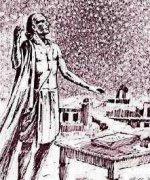
Worksheets and No Prep Teaching Resources
Reading Comprehension Worksheets
Ancient India

Ancient India
 Worksheets and No Prep Teaching Resources Reading Comprehension Worksheets Ancient India |
 Ancient India |
| edHelper's suggested reading level: | grades 8 to 10 | |
| Flesch-Kincaid grade level: | 9.36 |
|
Science and Technology in Ancient India
By Vickie Chao |

|
 1 India is a fascinating country with a very long history. The earliest evidence of its civilization dates back about 4,500 years. Throughout that time, Indians invented many things. Their discoveries, especially in mathematics, astronomy, and medicine, have had a profound impact on the rest of the world. While it is impossible to catalogue all their achievements, here is a quick run-down that highlights their most important findings.
1 India is a fascinating country with a very long history. The earliest evidence of its civilization dates back about 4,500 years. Throughout that time, Indians invented many things. Their discoveries, especially in mathematics, astronomy, and medicine, have had a profound impact on the rest of the world. While it is impossible to catalogue all their achievements, here is a quick run-down that highlights their most important findings. |
Create Weekly Reading Books
Prepare for an entire week at once! |
| Leave your feedback on Science and Technology in Ancient India (use this link if you found an error in the story) |
 |
Ancient India
|
 |
High School Reading Comprehensions and High School Reading Lessons
|
 |
Social Studies
|